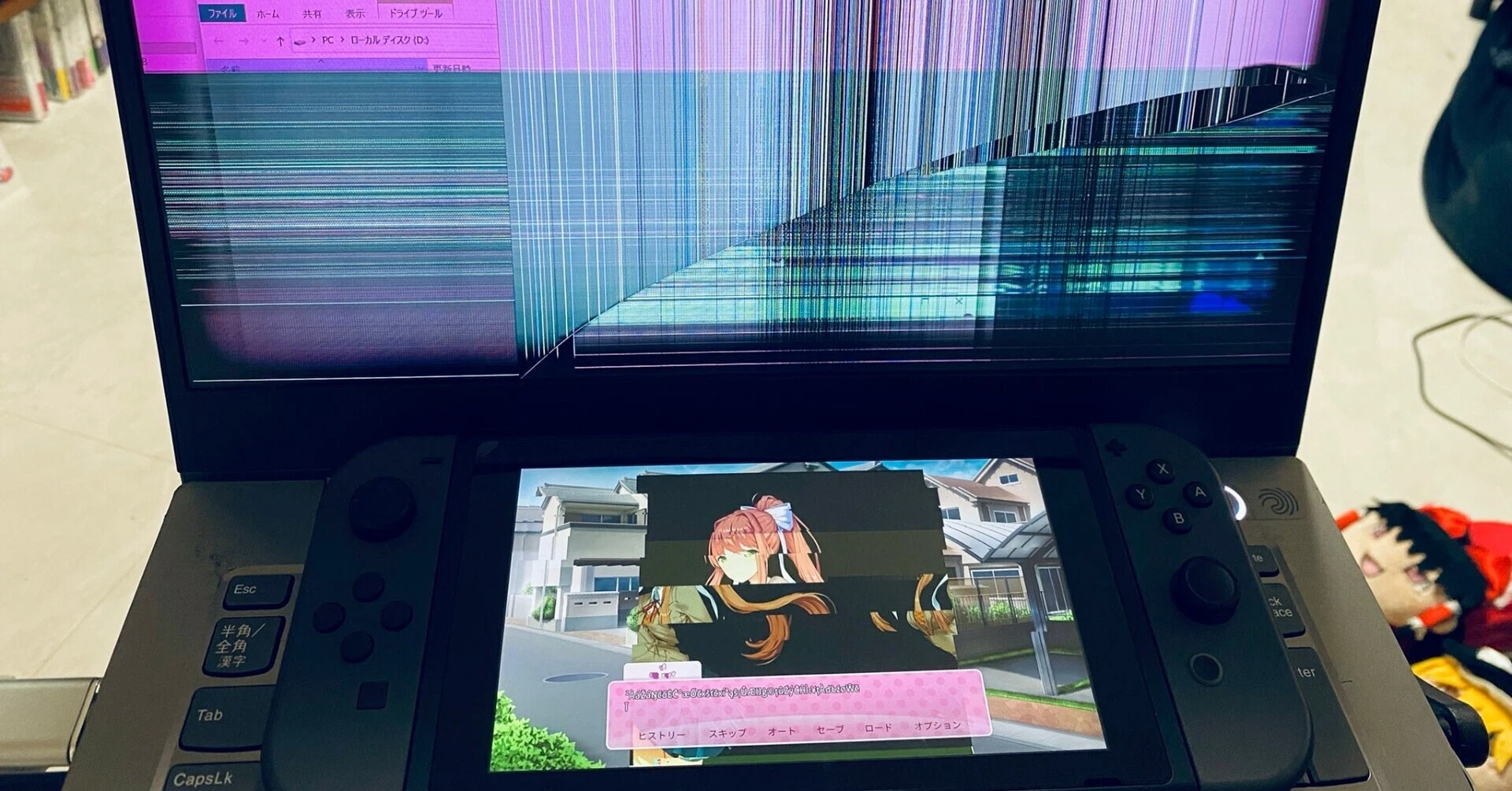※Originally published on note, June 19, 2022.
↑This one’s from a piece I published in my doujinshi. Hope you’ll take a look.
Doki Doki Literature Club!
Playing a bishoujo game means confronting the “shoujo”(girls) herself.
As players, we get to know these girls through their stories. We show them understanding, and through that, we draw closer to them.
And understanding—yes, as I once wrote—is just another word for kindness.
To listen, to care, to consider the other person’s inner world… that is what understanding is. That is what kindness is.
But what about the girl’s side?
If we’re observing and trying to understand her, then shouldn’t she also observe us in return? Shouldn’t she try to understand us?
After all, love—true love—ought to be mutual.
Of course, such a thing is impossible.
No matter how much they wish to be human, they are still prisoners of narrative—slaves to lines of prewritten text.
Their thoughts, their emotions, their voices, their appearance—none of it truly belongs to them. It’s all compressed into tiny data files.
Even their memories, their very sense of self, are stored externally as save data.
Delete that save file, and the girl disappears. Her personality resets.
It’s the same cruel truth revealed in -Kiss the Future-.
In these games, the girls fall in love with the protagonist.
But the one controlling the protagonist is you, the player.
The character on screen is merely a puppet reflecting your choices—a fact made clear in Shuusaku.
So perhaps what these girls are truly in love with…isn’t even a person, but a puppet controlled by god.
Some, like the heroines in Sayonara o Oshiete, go mad with faith and attempt to resist their god's control.
But when you take a step back—view the whole thing through a meta-lens—you realize you're just watching a girl fall in love with a puppet… through a screen.
You yourself are never truly part of the relationship.
You never really face the girl.
It’s sad, isn’t it?
But what if…
What if one of those puppets were to become aware of the “god” beyond the monitor?
What if she not only recognized god—but tried to reach them?
Only then—only then—could we call it love.
Two beings, each aware of the other’s existence.
They learn about one another.
They rub emotions against each other.
They share memories.
They speak—again and again.
And slowly, across the divide of the monitor, they begin to meet each other’s gaze.
That, at last, is understanding.
That is the presence of “the other.”
The girl has always, always looked only at you.
So if you truly want a mutual love,
then you, too, must look only at her.
Yes.
Only her.
Just ██████.





Comments (1)
Leave a comment